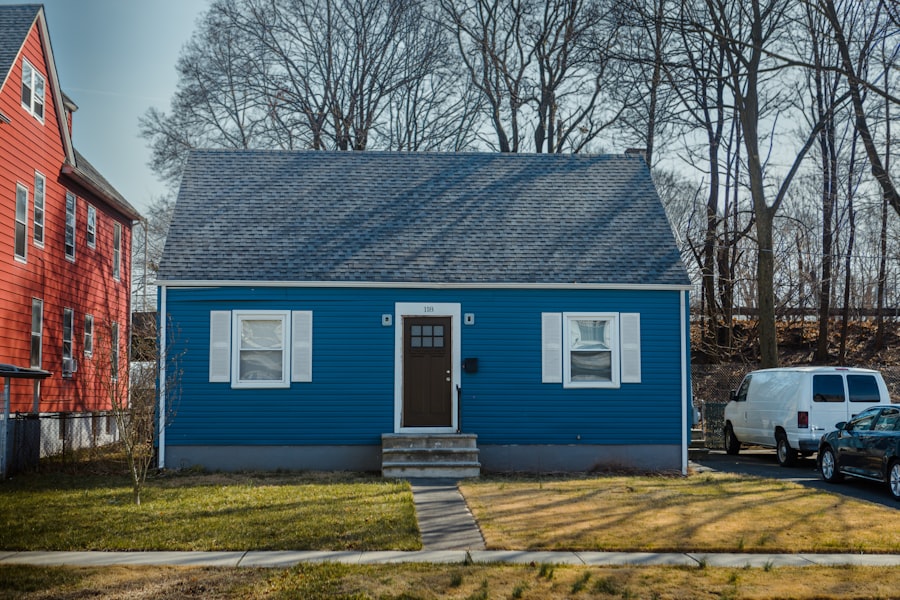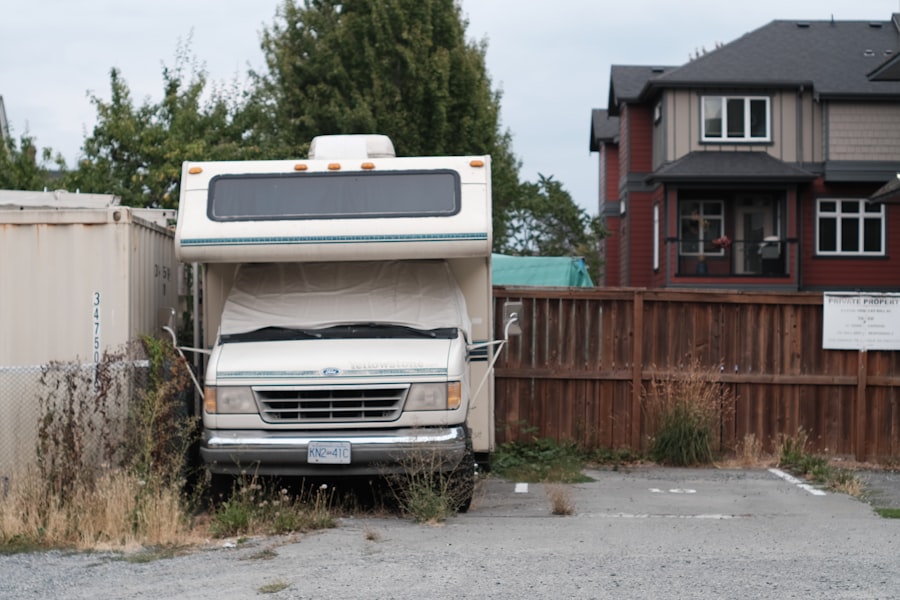Trailer house loans, often referred to as manufactured home loans, are specialized financing options designed for individuals looking to purchase mobile or manufactured homes. Unlike traditional mortgages that are typically associated with fixed structures, trailer house loans cater to homes that may be movable and often come with unique considerations. These loans can be secured through various financial institutions, including banks, credit unions, and specialized lenders who focus on manufactured housing.
The terms and conditions of these loans can vary significantly based on the lender, the type of home being purchased, and the borrower’s financial profile. One of the key distinctions of trailer house loans is that they can be classified into two main categories: chattel loans and real estate loans. Chattel loans are used for homes that are not permanently affixed to land, meaning they can be moved.
These loans typically have shorter terms and higher interest rates due to the increased risk associated with the collateral. On the other hand, real estate loans are applicable when the manufactured home is permanently attached to a foundation and the land is owned by the borrower. This type of financing often comes with more favorable terms, including lower interest rates and longer repayment periods, as the home is considered real property.
Key Takeaways
- Trailer house loans require understanding lender criteria and your financial health.
- Comparing lenders helps find the best loan terms and interest rates.
- Securing a down payment is crucial; use strategic saving and assistance programs.
- Proper documentation and avoiding common application mistakes improve approval chances.
- After loan approval, focus on timely repayment and maintaining your trailer house.
Assessing Your Financial Situation: What Lenders Look For
Before applying for a trailer house loan, it is crucial to assess your financial situation thoroughly. Lenders will evaluate several factors to determine your eligibility for a loan, including your credit score, income level, debt-to-income ratio, and employment history. A strong credit score is particularly important, as it reflects your ability to manage debt responsibly.
Most lenders prefer a credit score of at least 620 for manufactured home loans, although some may offer options for borrowers with lower scores. Understanding where you stand financially will help you identify potential areas for improvement before you apply. In addition to credit scores, lenders will scrutinize your income and employment stability.
They typically require proof of steady income, which can include pay stubs, tax returns, and bank statements. A consistent employment history can bolster your application, as it demonstrates reliability and the ability to make regular loan payments. Furthermore, lenders will calculate your debt-to-income ratio (DTI), which compares your monthly debt payments to your gross monthly income.
A lower DTI indicates that you have a manageable level of debt relative to your income, making you a more attractive candidate for a loan.
Choosing the Right Lender: Comparing Options

Selecting the right lender for your trailer house loan is a critical step in the financing process. With various options available, it is essential to compare lenders based on their offerings, interest rates, fees, and customer service. Traditional banks may provide competitive rates but could have stricter lending criteria and longer processing times.
Conversely, credit unions often offer more personalized service and lower fees but may have limited loan products specifically for manufactured homes. Online lenders have gained popularity in recent years due to their convenience and streamlined application processes. Many of these lenders specialize in manufactured home financing and can provide quick pre-approval decisions.
However, it is vital to read reviews and assess their reputation before committing. Additionally, consider reaching out to local lenders who may have a better understanding of the regional market and specific requirements for trailer house loans. By gathering quotes from multiple lenders and comparing their terms side by side, you can make an informed decision that aligns with your financial goals.
Securing a Down Payment: Tips and Strategies
| Tip/Strategy | Description | Estimated Timeframe | Potential Savings | Difficulty Level |
|---|---|---|---|---|
| Automated Savings Plan | Set up automatic transfers to a dedicated savings account each payday. | 6-12 months | Varies based on income and transfer amount | Easy |
| Cutting Non-Essential Expenses | Reduce spending on dining out, subscriptions, and entertainment. | Ongoing | Up to 20% of monthly income | Moderate |
| Side Income Opportunities | Take on freelance work, part-time jobs, or gig economy tasks. | 3-6 months | Additional income depending on hours worked | Moderate |
| Down Payment Assistance Programs | Research and apply for local or state grants and loans. | Varies | Up to 5% of home price | Easy to Moderate |
| Gift Funds from Family | Accept monetary gifts to supplement savings. | Varies | Varies | Easy |
| High-Yield Savings Account | Use accounts with higher interest rates to grow savings faster. | 6-12 months | 1-2% annual interest | Easy |
| Budgeting and Financial Planning | Create a detailed budget to track income and expenses. | Ongoing | Improved savings efficiency | Moderate |
A down payment is often a significant hurdle for many borrowers seeking a trailer house loan. The amount required can vary depending on the lender and the type of loan you are pursuing. Generally, chattel loans may require a down payment ranging from 5% to 20%, while real estate loans might necessitate a larger down payment of 10% to 25%.
To secure the necessary funds for a down payment, consider various strategies that can help you accumulate savings more effectively. One approach is to create a dedicated savings plan specifically for your down payment. Set a realistic savings goal based on the price range of the trailer house you wish to purchase and establish a timeline for achieving that goal.
Automating your savings by setting up direct deposits into a separate savings account can help you stay disciplined in your efforts. Additionally, explore potential sources of down payment assistance programs offered by local or state housing agencies, which may provide grants or low-interest loans to eligible borrowers.
Understanding Loan Terms and Interest Rates
When considering a trailer house loan, it is essential to understand the various loan terms and interest rates that may apply. Loan terms typically range from 15 to 30 years for real estate loans, while chattel loans may have shorter terms of 5 to 20 years. The length of the loan can significantly impact your monthly payments and the total interest paid over the life of the loan.
A longer term may result in lower monthly payments but could lead to higher overall interest costs. Interest rates for trailer house loans can vary widely based on market conditions, the lender’s policies, and your creditworthiness. Fixed-rate loans offer stability as the interest rate remains constant throughout the loan term, making budgeting easier for borrowers.
Conversely, adjustable-rate mortgages (ARMs) may start with lower initial rates but can fluctuate over time based on market indices, potentially leading to higher payments in the future. It is crucial to weigh the pros and cons of each option carefully and consider how they align with your financial situation and long-term goals.
Preparing Your Documentation: What You’ll Need to Apply

Once you’ve decided on a lender and are ready to apply for a trailer house loan, preparing your documentation is a vital step in the process. Lenders typically require a comprehensive set of documents to assess your financial situation accurately. Commonly requested documents include proof of income such as pay stubs or tax returns from the past two years, bank statements that demonstrate your savings and assets, and identification documents like a driver’s license or Social Security card.
In addition to personal financial documents, you may also need information specific to the manufactured home you intend to purchase. This can include details about the home’s age, condition, and whether it meets local building codes. If you’re buying a used trailer house, obtaining an appraisal or inspection report may be necessary to ensure that the home is worth the amount you’re borrowing.
Being organized and having all required documentation ready can expedite the application process and improve your chances of approval.
Avoiding Common Pitfalls: Tips for a Successful Loan Application
Navigating the loan application process can be daunting, especially for first-time borrowers seeking trailer house financing. To enhance your chances of success, it is essential to be aware of common pitfalls that applicants often encounter. One frequent mistake is failing to check credit reports before applying for a loan.
Errors or discrepancies in your credit report can negatively impact your score and lead to unfavorable loan terms or even denial of your application. Another common issue arises from not fully understanding the terms of the loan being offered. Borrowers should take the time to read through all documentation carefully and ask questions if anything is unclear.
This includes understanding fees associated with the loan, such as origination fees or prepayment penalties that could affect your overall cost of borrowing. Additionally, avoid making significant financial changes during the application process—such as taking on new debt or changing jobs—as these actions can alter your financial profile and jeopardize your approval.
What to Expect After Securing Your Trailer House Loan: Repayment and Maintenance
After successfully securing a trailer house loan, borrowers should familiarize themselves with what comes next in terms of repayment and home maintenance responsibilities. Monthly payments will typically begin shortly after closing on the loan; thus, it is crucial to budget accordingly to ensure timely payments are made. Setting up automatic payments can help prevent missed deadlines and maintain a positive relationship with your lender.
In addition to managing loan repayments, homeowners must also consider ongoing maintenance for their manufactured homes. Regular upkeep is essential not only for preserving property value but also for ensuring safety and comfort within the home. This includes routine inspections of plumbing systems, electrical wiring, roofing integrity, and HVAC systems.
Being proactive about maintenance can prevent costly repairs down the line and contribute positively to your overall homeownership experience. Understanding trailer house loans involves navigating unique financing options tailored specifically for manufactured homes. By assessing your financial situation thoroughly, choosing the right lender wisely, securing an adequate down payment, comprehending loan terms and interest rates clearly, preparing necessary documentation meticulously, avoiding common pitfalls diligently, and managing repayments alongside maintenance responsibilities effectively, you can embark on a successful journey toward owning a trailer house that meets your needs and aspirations.



